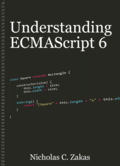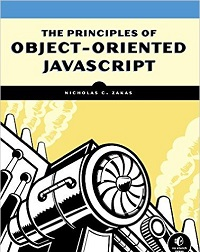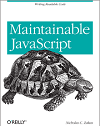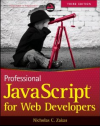My favorite interview question
Interviewing and hiring are more difficult tasks than they may seem. The cost of hiring the wrong person is quite high, yet companies that are hiring often want help sooner rather than later and so sometimes don’t want to wait for a good candidate to come along. I operate on the mindset that the damage done by filling a position with a bad fit is far greater than the damage of not having enough people to do work, and so I believe in optimizing to find the right person for the job.
With that goal in mind, I have a favorite interview question that has helped me make a lot of hiring decisions over the years. I’m sure a few of you are thinking, “oh no, he’s going to give away a good interview question and that will make it useless.” Not so. I believe that a good interview process is one that is effective even when candidates know the questions ahead of time. I’m sharing this question specifically because I think it will help everyone, candidate and interviewer alike, by shifting focus to career aspirations.
The question
I rarely ask the question in the exact same way, but it usually takes this form:
Suppose you could design your dream job that you’ll be starting on Monday. It’s at your ideal company with your ideal job title and salary. All you have to do is tell them what you want to do at your job and you can have it. What does your job entail?
The question looks fairly simple at first glance, but there are some subtleties that help you dig in on important details.
“Starting on Monday”
The phrase “starting Monday” places the job in a specific time. It’s clear that we’re not talking about a position you will one day aspire to, nor are we talking about a dream job that can’t actually exist. If a job is to start on Monday, you don’t have time to learn new skills or gain experience. You are what you are, professionally, and you need to come up with a job that you can effectively perform next week.
Ideal company, title, and salary
I immediately exclude discussion of company, title, and salary, because these are the things people think they want but can’t really affect my decision. Obviously the company is completely out of my control unless it’s my current employer (I also don’t want people sucking up to me by saying that my current employer is their dream job). I don’t want to get into a discussion about titles because they are mostly meaningless; I’m not interested in what you want people to call you, I want to know what you’re passionate about working on. And salary is, depending on the person, of variable importance and doesn’t tell me much about the person. Yes, I would also like to have a $1 million salary per year, but that’s not helpful in my evaluation of a candidate.
So by stating that these three things, company, title, and salary, are already taken care of, it frees candidates to think about what really matters to them.
Discussion
As should be obvious, this is not meant to have a one-sentence answer. Instead, I use it as a conversation starter to dig and find out what drives this person. Follow up questions and reacting to what they are saying helps me to figure out just how well this person would fit for the position. When trying this on your own, I’d encourage you to develop your own follow questions to dig deeper into the candidate’s ideal job.
Getting stuck
Sometimes the scope of this question is too big for people to grasp and they get stuck. The enormity of defining any job they want can be overwhelming to certain people, and if that happens, I ask some followup questions to send them down the right path:
- Let’s start very simple: do you want to be writing code all day? If not, what else would you like to be doing?
- Would you be working alone or on a team? If on a team, what role would you play on that team?
- Is there a programming language you’d like to be spending most of your time in? What percentage of time would you need in that programming language to be happy?
- Let’s turn this around: what would you absolutely not want to do?
- Is there something you’d like to spend time learning on your new job?
These questions are designed to get the candidate back on track (I never let people opt-out of the question). By helping to narrow down the job description to a few options, most candidates are able to continue down this path once they start.
Realistic self-view
The first thing I try to figure out is if this person’s job description matches their skills. If a 22 year old tells me they want to be CEO of Google next week, for example, it looks like either their perspective on their skills is flawed or they didn’t really grasp what I was asking. In that case, I say something like, “remember, you’re starting this job on Monday. Are you ready to be CEO of Google on Monday?” If they say yes, then I’ll probably entertain myself by asking how they’d run the company while mentally moving on to the next candidate.
IC vs. manager
I’ve periodically interviewed people for an individual contributor (IC) position and asked this question only to find that they really wanted to be a manager. Sometimes it’s someone applying for a manager position who, underneath it all, really wants to be an IC. This is a really important data point to have because tend to get unhappy when in a position they’re not picturing, and unhappy workers create problems (some small, some large). So if I have any hint that they may not be applying for the right role, I ask them to clarify, “so this ideal job would be in management?” Or, “this ideal job has no management responsibilities?”
Leader vs. follower
A slightly different take on IC vs. manager is whether someone is a leader or a follower. Here’s the tricky part: leaders are more likely to tell you they feel they can and followers will almost never tell you they prefer to follow. Of course, you also can’t really ask them directly because no one wants to be thought of as a follower so everyone will say they are a leader. I’ve found it best to just listen to what people say and make a determination. The key phrases I look for in determining if someone is a leader are:
- I like to help other people
- I feel like I have a lot of experience to share
- I don’t mind/I love mentoring others
By the way, if you’re thinking you can trick someone into think you’re a leader by using these phrases, you’re wrong. They are just indicators to dig deeper, you’re not going to trick someone who knows what they’re doing.
Important: Both leaders and followers are important for a healthy team. Equally important is making sure you match people with the correct roles. Putting a follower into a leadership position is incredibly damaging to everyone, likewise forcing a leader into a follower position will lead to unhappiness. The goal here isn’t to weed out followers, it’s to make sure you’re matching people to positions effectively.
Time spent
At some point during the discussion I usually ask people to break down how much of their time they’d like to spend on any particular task. Do they want a 50/50 split between coding work and management work? Do they want to spend 70% of their time designing and architecting and only 30% doing actual coding? Are they a manager who wants to spend 10% of their time coding to “stay in the game?” These are all important to understand to get a full understanding of the person.
Concluding
At the end of this question, I repeat back what the candidate told me. Something like:
Okay, so let me see if I have this correct. In your ideal job, you’d be spending 75% of the day writing code (JavaScript, if possible) and 25% of your day meeting with others to discuss technology and code. You’d prefer to be on a team of about 5 people and you’d like to be mentored by someone with more experience than you. Is that right?
If I get it wrong, I ask them to correct me so I have a good understanding. Once I have their answer correct, then I explain to them why I asked this question. Usually along the lines of:
The reason I ask this question to people is because I believe it’s important to match people up to the correct position. I wanted to get to know you and your career goals to make sure we have a good fit for you. What I’d like to do now is tell you what I’m looking for and we can decide together if it seems like we have a fit. Does that sound okay?
At that point, I describe what the job they’re applying for is like. I talk about the areas in which it is different from what they described and the areas in which it matches. Then, I offer my perspective on whether there’s a fit and I ask them for theirs. This usually ends up in one of several paths:
- It sounds to me like this isn’t a great match for what you’re looking for. Do you agree?
- From what you’ve described, this seems like a job that mostly matches what you’re looking for. What do you think?
- It seems like this job is exactly what you’re looking for. Do you agree?
When there’s a good fit, the candidate feels better about continuing in the process because of this exercise. They understand that I’m not saying this is a great position for them to try to blindly sell them, but that I really understand what they’re looking for and can honestly say I think it’s a good fit.
I’ve never once had an argument with someone when I suggested it seemed like we didn’t have a good match. In most cases, the candidates have thanked me for the exercise because it helped them really narrow in on what they’re passionate about and what type of job they should be looking for. A couple times I’ve encouraged the candidate to apply to a different job at the company that seems more suited for what they’re looking for. In all cases, candidates have told me they enjoyed answering the question.
Summary
I think getting to know a candidate is almost (almost!) more important than evaluating their skills. I’ve seen a lot of damage caused by hiring people into the wrong position due to mismatched expectations, and I’d like to avoid that at all costs. I also want candidates to know that I’m not trying to sell them something I don’t have, nor am I making false promises about their chances of success when hired. Instead, I’m offering a complete view into the job they’re applying for and, hopefully, a clearer view of their own goals and preferences.
I can honestly say this is the question I enjoy asking the most because reveal a lot about themselves. I think the key takeaway is that, regardless of the outcome, they feel listened to and that they were given a chance to really express how they see themselves fitting into an organization.
Ultimately, I feel that I have a responsibility to both my employer and the candidate to make sure we hire people that are good matches for the positions we have. The answers I receive from this question tell me very quickly how good of a match there is, at which point I feel better about spending more time digging into their credentials and skills. If I could only ask one interview question to every candidate, this would be the one.
Disclaimer: Any viewpoints and opinions expressed in this article are those of Nicholas C. Zakas and do not, in any way, reflect those of my employer, my colleagues, Wrox Publishing, O'Reilly Publishing, or anyone else. I speak only for myself, not for them.





